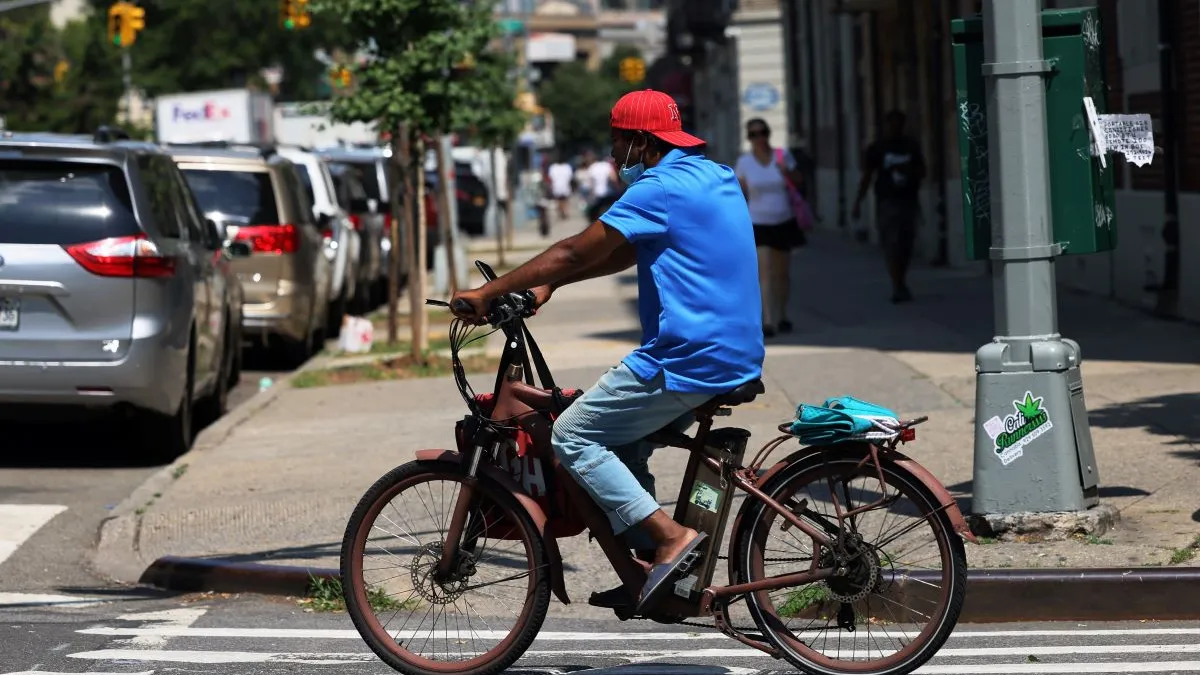Dive Brief:
- The New York City Department of Consumer and Worker Protection reduced the proposed minimum wage for app-based delivery drives by nearly $4 an hour, the department said Tuesday.
- Despite the cut to the rate, the new wage scale ($17.96 in 2023, rising to $19.96 an hour in 2025), with an adjustment for inflation, constitutes a significant raise for workers, DCWP said. The new wage will be equivalent to almost three times what gig workers make now, according to the department.
- The DCWP cited public opposition by employers to the delivery driver wage rule proposed in November in its justification for shaving down the proposed wage from its initial target of $23.82 by 2025.
Dive Insight:
Uber Eats, Grubhub and DoorDash all advocated for the city to cut its proposed base pay to account for so-called multi-apping, or the periods of time when delivery workers are logged in to multiple delivery apps, according to the new rule.
The DCWP reduced its proposed total pay by $3.60 and also reduced proposed compensation for Medicare and Social Security contributions by 2 cents, alongside a 2-cent cut to proposed workers’ comp adjustments and a further 22-cent reduction in base pay, resulting in a total cut of $3.86.
Also, at the industry’s prodding, the department is adding an alternative scheme for calculating worker pay. According to a press release from the DCWP, this means that apps that pay workers for on-call time and delivery time must pay workers about $0.30 a minute, while apps that only pay for delivery time must pay about $0.50 a minute. The press release contends this would lead to roughly equivalent pay rates, given the amount of time workers are available on the apps while not actively delivering goods.
While gig employers got some of their wishes in the updated rule, they did not succeed in persuading the DCWP to factor tips into hourly base pay.
“DoorDash, Uber Eats, Grubhub, and tech industry advocates commented that the base pay component of the rate should factor in workers’ tip earnings or should be based on the hourly pay of tipped workers,” the DCWP’s statement of basis and proposed rule states. The DCWP rejected that suggestion as it clashed with the law that initiated the rulemaking process, which bars the DCWP from including gratuities in base pay calculations.
Uber Eats sought to keep the hourly wage from being pegged to inflation. The industry as a whole argued against the inclusion of a workers compensation reimbursement in the law, but the DCWP ignored their suggestions. Delivery companies also unsuccessfully asked DCWP to cut equipment wear-and-tear calculations from the proposed pay rate.
According to the DCWP’s documents, worker advocates and elected officials sought unsuccessfully to persuade the department to raise the workers compensation and wear-and-tear components of the wage.
Grubhub said it was reviewing the updated proposal and would continue dialogue with the city. DoorDash and Uber Eats did not immediately respond to requests for comment.















